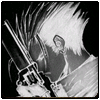Without some degree of fortitude there can be no happiness, because, amidst the thousand uncertainties of life, there can be no enjoyment of tranquillity. The man of feeble and timorous spirit lives under perpetual alarms. He sees every distant danger and tremble; he explores the regions of possibility to discover the dangers that may arise: often he creates imaginary ones; always magnifies those that are real. Hence, like a person haunted by spectres, he loses the free enjoyment even of a safe and prosperous state, and on the first shock of adversity he desponds. Instead of exerting himself to lay hold on the resources that remain, he gives up all for lost, and resigns himself to abject and broken spirits. On the other hand, firmness of mind is the parent of tranquillity. It enables one to enjoy the present without disturbance, and to look calmly on dangers that approach or evils that threaten in future. Look into the heart of this man, and you will find composure, cheerfulness, and magnanimity; look into the heart of the other, and you will see nothing but confusion, anxiety, and trepidation. The one is a castle built on a rock, which defies the attacks of surrounding waters; the other is a hut placed on the shore, which every wind shakes and every wave overflows.
~BLAIR.
* * * * *
THE IVY IN THE DUNGEON
The Ivy in a dungeon grew
Unfed by rain, uncheer'd by dew;
Its pallid leaflets only drank
Cave-moistures foul, and odours dank.
But through the dungeon-grating high
There fell a sunbeam from the sky:
It slept upon the grateful floor
In silent gladness evermore.
The ivy felt a tremor shoot
Through all its fibres to the root;
It felt the light, it saw the ray,
It strove to issue into day.
It grew, it crept, it push'd, it clomb--
Long had the darkness been its home;
But well it knew, though veil'd in night,
The goodness and the joy of light.
Its clinging roots grew deep and strong;
Its stem expanded firm and long;
And in the currents of the air
Its tender branches flourish'd fair.
It reach'd the beam--it thrill'd, it curl'd,
It bless'd the warmth that cheers the world;
It rose towards the dungeon bars--
It look'd upon the sun and stars.
It felt the life of bursting spring,
It heard the happy sky-lark sing.
It caught the breath of morns and eves,
And woo'd the swallow to its leaves.
By rains, and dews, and sunshine fed,
Over the outer wall it spread;
And in the daybeam waving free,
It grew into a steadfast tree.
Upon that solitary place
Its verdure threw adorning grace.
The mating birds became its guests,
And sang its praises from their nests.
Wouldst know the moral of the rhyme?
Behold the heavenly light, and climb!
Look up, O tenant of the cell,
Where man, the prisoner, must dwell.
To every dungeon comes a ray
Of God's interminable day.
On every heart a sunbeam falls
To cheer its lonely prison walls.
The ray is TRUTH. Oh, soul, aspire
To bask in its celestial fire;
So shalt thou quit the glooms of clay,
So shaft thou flourish into day.
So shalt thou reach the dungeon grate,
No longer dark and desolate;
And look around thee, and above,
Upon a world of light and love.
~MACKAY.
Karate Kata Secrets of the NBA
9 years ago
